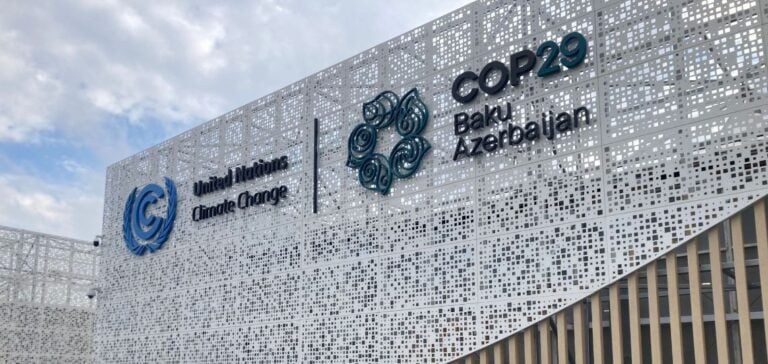The opening of COP29 in Baku, Azerbaijan, saw a turbulent start as debates over the European Union’s Carbon Border Adjustment Mechanism (CBAM) created tensions among attending nations. In the first plenary session, the BASIC bloc — composed of four emerging countries: Brazil, South Africa, India, and China — insisted that “climate-related, trade-restrictive unilateral measures,” such as CBAM, be included in the official agenda of this global climate summit.
CBAM at the Heart of International Divergences
The CBAM, implemented by the European Union, aims to reduce carbon emissions by imposing a tax on imports of carbon-intensive products, including aluminum, cement, and steel, from countries with less stringent climate policies. This measure seeks to mitigate the risk of “carbon leakage,” whereby polluting industries relocate outside Europe to evade environmental constraints.
However, the EU’s proposal is not viewed uniformly. Developing countries see CBAM as a discriminatory and punitive measure that threatens their exports. The first session of COP29 was briefly interrupted due to demands from certain countries that this issue should instead be addressed within the World Trade Organization (WTO) rather than at COP.
Divergent Reactions and Economic Impact for Developing Countries
Criticism of this carbon tax is not new among emerging nations. At previous summits, countries like Brazil and South Africa have already expressed dissatisfaction with the economic impacts of this measure, particularly for their export industries in metals and construction materials. These economies view CBAM as disguised protectionism that could affect their competitiveness.
The BASIC nations, representing a significant bloc of emerging countries, have underscored that climate policies should be adapted to the economic context of developing countries. They assert that imposing such carbon taxes without economic support alternatives could hinder their industrial development.
An Issue for Global Climate Governance
This debate over CBAM reflects a broader question in international climate governance: how to reconcile the imperatives of ecological transition with the diverse economic realities of countries. Some analysts believe that including such discussions in the official COP agenda would mark a recognition of the link between trade and climate policy, but the EU continues to view these issues as falling under the purview of the WTO.
Kevin Conrad, founder of the Coalition for Rainforest Nations, stated that these discussions are essential to prevent long-term tensions between countries. He also noted that if this topic is not formally addressed at COP29, Brazil, the host of COP30, will bring it to the table next year.
The Future of CBAM and China’s Position
China, for its part, has expressed its intent to defend its trade interests against Western unilateral climate policies. In response, a policy analyst based in Beijing emphasized that the country is prepared to discuss all policies impacting international trade, including new European rules on batteries and the U.S. Inflation Reduction Act, which subsidizes domestic manufacturers in clean energy sectors.
In a context where the United States could distance itself from international climate negotiations, China could enhance its influence at future COPs. This dynamic could open the way for a restructuring of the global climate governance rules, according to some experts.





















